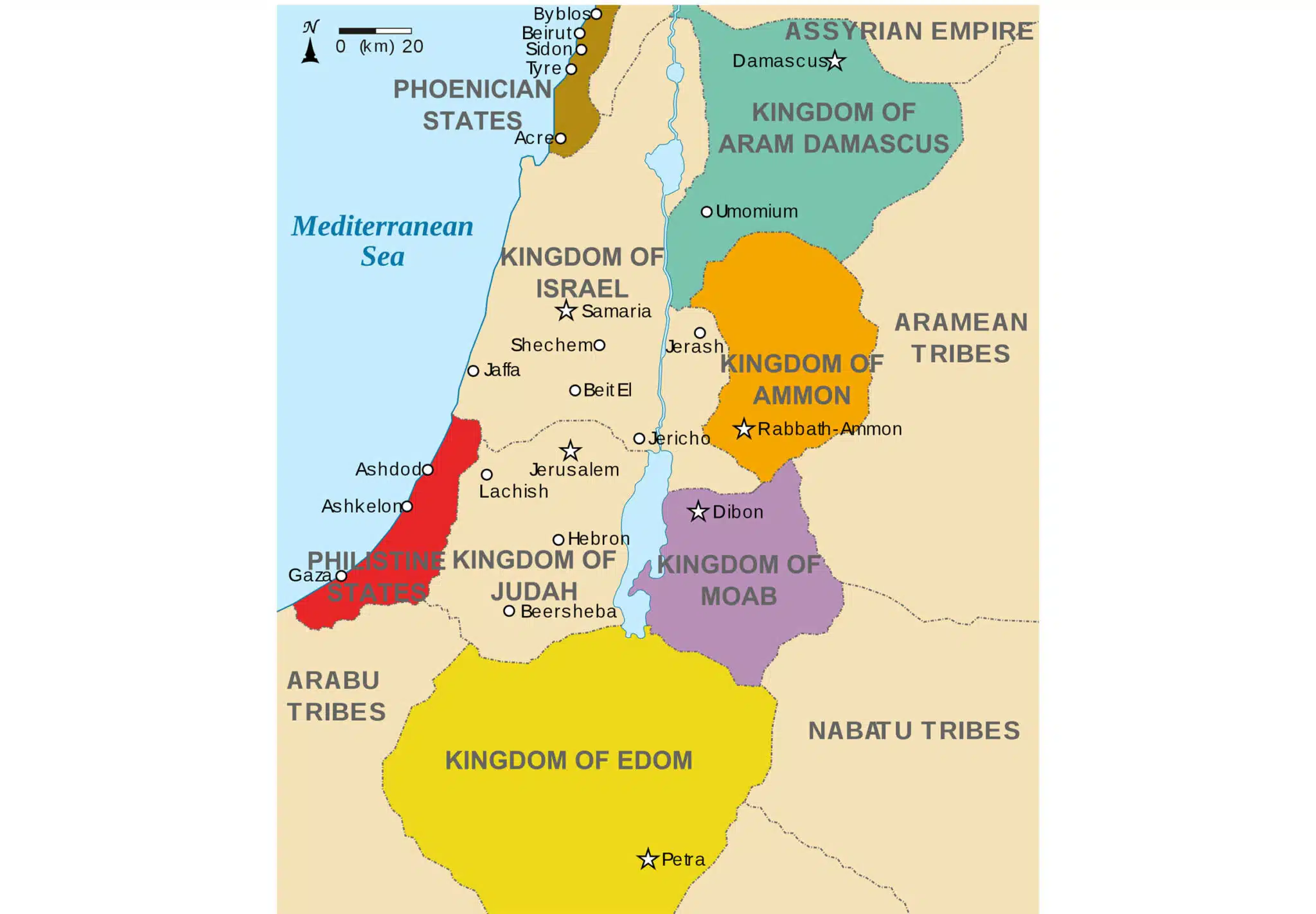The LORD pronounces judgment on the inhabitants of Moab because they burned the bones of the king of Edom to lime.
After pronouncing judgment on Damascus (Syria), Philistia (cities on the Mediterranean coastline bordering southern Israel), Tyre (modern Lebanon, north of Israel), Edom (the southern part of modern Jordan), and Ammon (northern part of modern Jordan, east of Israel), the LORD turned His attention to Moab, a country located east of the Dead Sea, between Ammon on the north side and Edom on the south. The LORD said, For three transgressions of Moab and for fourI will not revoke its punishment. The Moabites were kinsmen to the Israelites because they traced their ancestry to the older daughter of Lot (Genesis 19:37). They were a pagan people who worshiped a god named Chemosh (Numbers 21:29; Jeremiah 48:7).
The Moabites would be judged by God for their transgressions, one of which was the burning of the bones of the king of Edom to lime. In the ancient world it was very important for a man’s dead body to receive proper burial. That is why tombs often had curses inscribed on them to protect them from being desecrated or treated with indignity (disrespect).
The actions of the Moabites show that they had no respect for human dignity of the Edomites. They humiliated Edom by disrespecting their dead. They not only defiled the graves of the king of Edom but also burned it to lime (or powder), rather than leaving the bones to have a proper burial. The LORD would not fail to punish those who disrespect a dead person’s body—whether a king or an ordinary person. Consequently, the LORD would send fire upon Moab, which would consume the citadels of Kerioth. The term Kerioth refers to a city containing a shrine devoted to Chemosh, the Moabite god. The word translated citadels can also be translated as “palace” or “fortress.” This Moabite city has been identified with el-Qereiyat and Khirbet Aleiyan (Jeremiah 48:41). Using fire as a symbol of judgment, the LORD threatened to destroy Moab along with the fortresses of Kerioth.
God’s judgment would cause Moab to die amid tumult, with war cries and the sound of a trumpet. In other words, God would send an enemy nation to wage war on Moab. Such a military attack on Moab would cut off the judge from her midst and slay all her princes with him. Indeed Moab would be defeated because its fortresses would be consumed by fire, its ruler (judge) cut off, and its princes slain. Although precise details of the fulfillment of this prophecy remain unavailable, Moab did fall to the Assyrian Empire under Tiglath-Pileser in the eight century BC and to the Babylonians in the sixth century BC. See map.
Biblical Text
Thus says the Lord,
“For three transgressions of Moab and for four
I will not revoke its punishment,
Because he burned the bones of the king of Edom to lime.
2 “So I will send fire upon Moab
And it will consume the citadels of Kerioth;
And Moab will die amid tumult,
With war cries and the sound of a trumpet.
3 “I will also cut off the judge from her midst
And slay all her princes with him,” says the Lord.
Check out our other commentaries:
-
Numbers 8:23-26 meaning
In verses 23 – 26, the LORD added another requirement concerning the service of the Levites. They were to serve in the tabernacle from age...... -
Isaiah 36:11-22 meaning
The Rabshakeh finishes his propaganda campaign of fearmongering aimed at convincing Jerusalem to surrender to the king of Assyria....... -
Hosea 1:1 meaning
Hosea receives the word of the LORD during the days of Uzziah, Jotham, Ahaz and Hezekiah, kings of Judah, and during the days of Jeroboam...... -
3 John 1:3-4 meaning
John has heard report of how well the church was doing and it makes him glad....... -
Philemon 1:11-14 meaning
Paul requests that Philemon return Onesimus back to Rome, where he can continue serving the gospel and ministering to Paul in his imprisonment. Paul does......



